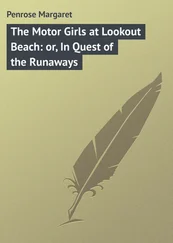After they’d graduated from school, they planned on attending Stockholm University together, where they both wanted to study biology and math and become schoolteachers. It was going to be a nice life, a comfortable one, and they both longed for it. But over that summer, Lennart was unexpectedly admitted to Chalmers University of Technology. The choice to attend was much easier than he’d anticipated. He studied engineering, got a job with Ericsson, and moved every couple years from one country to another. Sweden, then Morocco, then the United States, now back to Sweden. Of course, he and Marie lost touch during that time, but he also hadn’t found anyone else. Neither had Marie. Tove’s father was an Englishman named Ronnie whom Marie had met on a ski vacation in Austria. According to Marie, it was nothing serious and was over even before Tove was born. The whole thing felt arranged to Lennart, like it was being forced on him.
Bent’s apartment building was pastel green and six stories high. The neighborhood was quieter than his and the apartment was much bigger. He and Marie had talked about moving in together, though not much, as she thought waiting for Bent’s death was a little morbid. The apartment had plenty of room. Five bedrooms, an airy formal dining room used mainly as a library, a huge balcony with wrought iron railings. Lennart probably could take over the apartment even now, but Bent had refused to move into the assisted living facility and Lennart didn’t press the issue. After a long bureaucratic battle with the municipal health administrators, Bent won the right to have a nurse come four days a week to help with necessities.
Lennart let himself in with his spare key. From the hallway he said, “Hello, hello!” and was sure to make enough noise that Bent would hear him. He hung his coat and unwrapped the plastic from the tulips and stuffed it into his coat pocket.
The television was on in the living room. A large frowning sun rushed from one side of the screen to the other. Then a drab meteorologist with a bald head and wispy ponytail called for snow on Easter Day. Lennart kissed his grandfather on the cheek. “Hello,” he said again. The channel went to commercial. A normally expensive mattress shop was offering sharply reduced prices (up to 50 percent) on Jensen mattresses if it snowed on Easter. “It’s a bold move,” Lennart said.
“I suppose it is,” Bent said. “One has to take risks now and again.”
“Happy birthday, Grandpa.”
“There’s a war looming.”
“I brought flowers,” said Lennart, ignoring his grandfather. He’d had to learn to do this increasingly as his grandfather got older. “Tulips. I’ll put them in a vase for you.” He went to the kitchen and pulled a vase down from a shelf and filled it with cold water. “How are you today?” he called over his shoulder in the direction of the living room. He broke the stems off under running water and arranged the flowers in the vase.
“I’d like a beer,” Bent said. His doctors recently forbade alcohol. Switching to beer was as close to obedience as Bent was willing to go. Lennart hadn’t pressed the issue. Bent was ninety years old. Every week, Lennart restocked his grandfather’s refrigerator. He took out two beers. There was a glass on the counter and he tucked this under his arm on his way out of the kitchen. Bent turned the volume on the television down and breathed loudly out of his nose. “Who are you again?”
“Your grandson,” Lennart said and opened one of the beers, pouring half of it, too quickly, into the glass. “Lennart. I’m here to take you to the museum. The Winter War , remember?” Snow had accumulated on the balcony. Beyond this, he watched cars pulse across the bridge.
“I thought you were my nurse. He steals from me.”
When the foamy head of the beer had settled, Lennart gave his grandfather the glass of beer and then sat down on the corner of the coffee table. “Do you want me to call the agency again?”
“Salim says he’s from Tripoli,” Bent said. “Is that a real place?”
“It’s a city in Lebanon,” Lennart said. “There’s also a Tripoli in Libya.”
“I thought I’d made it up,” said Bent.
Lennart switched the television off. “It’s a real place,” he said. “Two real places.”
“Anyway, I’ve never been there.”
“You should wear a suit tonight,” Lennart said. “Do you need help getting dressed?” He’d arranged an official invitation for his grandfather from the Arts Council on the grounds that Bent was a veteran. He had the invitation mailed to his grandfather’s apartment, where he knew Salim would read it aloud. Every afternoon, Salim opened and sorted the mail according to its nature. Bills he stacked on the table in the hall for Lennart to collect and pay, which he did the twenty-seventh of every month from an account at Nordea Bank. He’d taken this task over from his father, and though he was not very good at managing his own finances, he always paid his grandfather’s bills on time.
Bent pointed toward the dim hall. “Suit’s in there,” he said.
Lennart helped his grandfather undress. Then he knelt, held Bent’s pants open and still as Bent sat on a kitchen chair and maneuvered each foot into each leg. Bent stood. Lennart fastened Bent’s pants, helped him with his jacket. When Bent was dressed, Lennart helped him back to his chair. He turned the television back on, poured his grandfather a fresh beer, and lay on the couch to watch the snow.
At a quarter to seven, to the sounds of a loud and confusing television game show in which it appeared contestants were asked first to deny and then to reveal embarrassing personal information to a jeering audience, Lennart got ready to go. He tied his tie and put on his jacket. In the hall mirror, he watched himself flex his shoulders and cross his arms, trying to stretch the fabric of his suit coat so that it fit less snugly. He always gained weight in the winter and it hadn’t come off yet. He settled for not buttoning the jacket. Then he called for a taxi.
The cab was idling in the street when they emerged from the entryway into the light snow. The apartment building was at the top of a short hill. Lennart was careful to hold his grandfather’s elbow tightly. “Well,” said Bent, “it’s snowing.”
“It is,” Lennart said.
Bent looked up at the cloudy sky. “We’re moving into lighter days,” he said. Marie sometimes used these old-fashioned expressions.
“We should be in them already,” Lennart said. “But I like the snow.” The driver got out of the car and opened the front and back passenger doors. Lennart helped his grandfather into the back and fastened the seat belt. In the front seat, Lennart and the driver looked at each other, smiled hello.
The drive from Bent’s apartment to Moderna Museet was short, but dull, and Lennart tried to persuade the driver to take a meandering route over two bridges and back up into the city from the south — he enjoyed the views of Stockholm from all but two of its bridges, especially in the snow — but the driver only chuckled at the recommendation and took Norr Mälarstrand instead. In no time, they’d arrived.
There was a red carpet leading up a pathway to the entrance of the museum. In a diffuse shadow behind one of the exterior lights, two men stood poised with brooms to sweep the collecting snow from the red carpet. A young woman in a black coat and white hat gestured toward the museum and said, in English, “Welcome to The Winter War.” Lennart smiled. Inside, he and his grandfather shared a hanger in the coat check. The fee was sixty kronor. Lennart didn’t leave a tip for the attendant. The lobby of the museum was lit much like it normally is — bright lights, shiny marble floor, stainless steel handles on tall pine doors. One of the doors was open. Lennart heard voices and music from out of the dark inside. He and Bent entered.
Читать дальше











